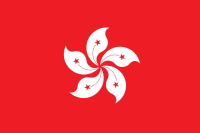
Photo from wikipedia
It has been nearly 2 years since the first case of COVID-19 was reported. Governments worldwide have introduced numerous non-pharmaceutical interventions (NPIs) to combat this disease. Many of these NPIs… Click to show full abstract
It has been nearly 2 years since the first case of COVID-19 was reported. Governments worldwide have introduced numerous non-pharmaceutical interventions (NPIs) to combat this disease. Many of these NPIs were designed in response to initial outbreaks but are unsustainable in the long term. Governments are exploring how to adjust their current NPIs to resume normal activities while effectively protecting their population. As one of the most controversial NPIs, the implementation of travel restrictions varies across regions. Some governments have abandoned their previous travel restrictions because of the induced costs to society and on the economy. Other areas, including Hong Kong (Special Administrative Region of China) and Singapore, continue employing these NPIs as a long-term disease prevention tactic. However, the multidimensional impacts of travel restrictions require careful consideration of how to apply restrictions more appropriately. We have proposed an adapted framework to examine Hong Kong and Singapore’s travel restrictions. We aimed to study these two regions’ experiences in balancing disease control efforts with easing the burden on lives and livelihoods. Based on the experiences of Hong Kong and Singapore, we have outlined six policy recommendations to serve as the cornerstone for future research and policy practices.
Journal Title: BMJ Global Health
Year Published: 2022
Link to full text (if available)
Share on Social Media: Sign Up to like & get
recommendations!